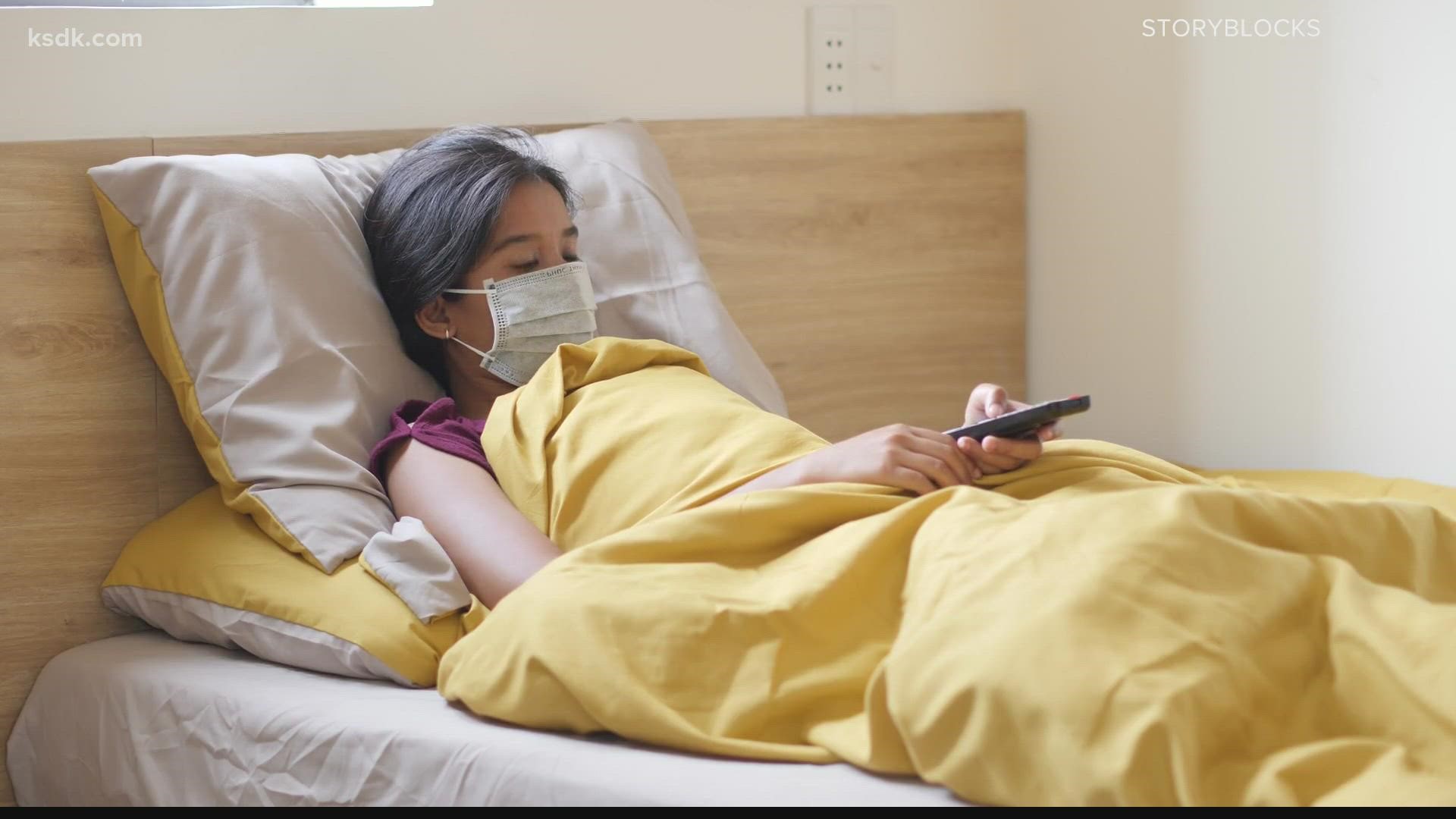With COVID once again running rampant in the community, chances are you know someone who has had it recently—so what should you do?
The CDC defines a "close contact" as spending at least a cumulative 15 minutes within 24 hours unmasked and less than six feet away from someone who tests positive for COVID-19, beginning two days before that person tests positive or two days before they begin showing symptoms.
Though the COVID-19 vaccines have provided protection from earlier strains and from serious illness, the latest numbers show that it’s time to be more careful again.
“When you have a close exposure to somebody with COVID, there is a chance, whether you're vaccinated or not, that you can get the new omicron strain,” said Dr. Rob Poirier, emergency medicine doctor with Barnes Jewish Hospital. He says right now, even the vaccinated may want to quarantine to avoid spreading the virus.
“[The omicron variant] is highly contagious, spreads easily, and the vaccine doesn't give you 100% protection against it,” he said. “So you just have to almost, when you're around other people assume that they can have COVID and kind of act like they could have COVID until we get through this surge.”
The latest CDC guidance says anyone who's not fully vaccinated, and anyone who has received initial doses but not a booster vaccine, should quarantine for five days after a close contact with someone who is COVID-19 positive.
If you are vaccinated and boosted, or if quarantine is not possible in your life situation? Take extra care to mask around others for the next 10 days.
“If a five-day quarantine is not feasible, it is imperative that an exposed person wear a well-fitting mask at all times when around others for 10 days after exposure,” reads the guidance.
“We live in the real world and we have to do what's practical and keep the world moving forward,” said Dr. Poirier.
If you are able to get ahold of a COVID-19 test, the most accurate read comes after five days of “exposure."
If you're symptom-free after five days and you can get a test and test negative, it's you're pretty certain that you're not carrying the virus at that stage. And so you're safe to go back to what you were doing before,” said Dr. Poirier, who adds that the current rate of infection means it’s more dangerous for the vaccinated to be around those who have not had their COVID-19 shots.
“It is a risk for you that you may contract COVID around unvaccinated because unvaccinated people are more likely to carry the virus and be spreaders of the virus,” he said.
What if one person in a household winds up with COVID?
“You should treat yourself as a close contact or close exposure,” he said. That could mean masking up and spreading out, in your own house, keeping more people at home and out of the hospital.
“If everybody wears a mask, some isolates as much as they can until we get through the surge, we’ll be OK,” he said. “The health care systems are getting overloaded at the moment and we need a little bit of a break.”
BJC doctors also stress: if you are asymptomatic and need a COVID-19 test, you should not be going to the emergency room to get one, since they're swamped and say they will deny you a test right now because they are saving them for the most in-need patients.

